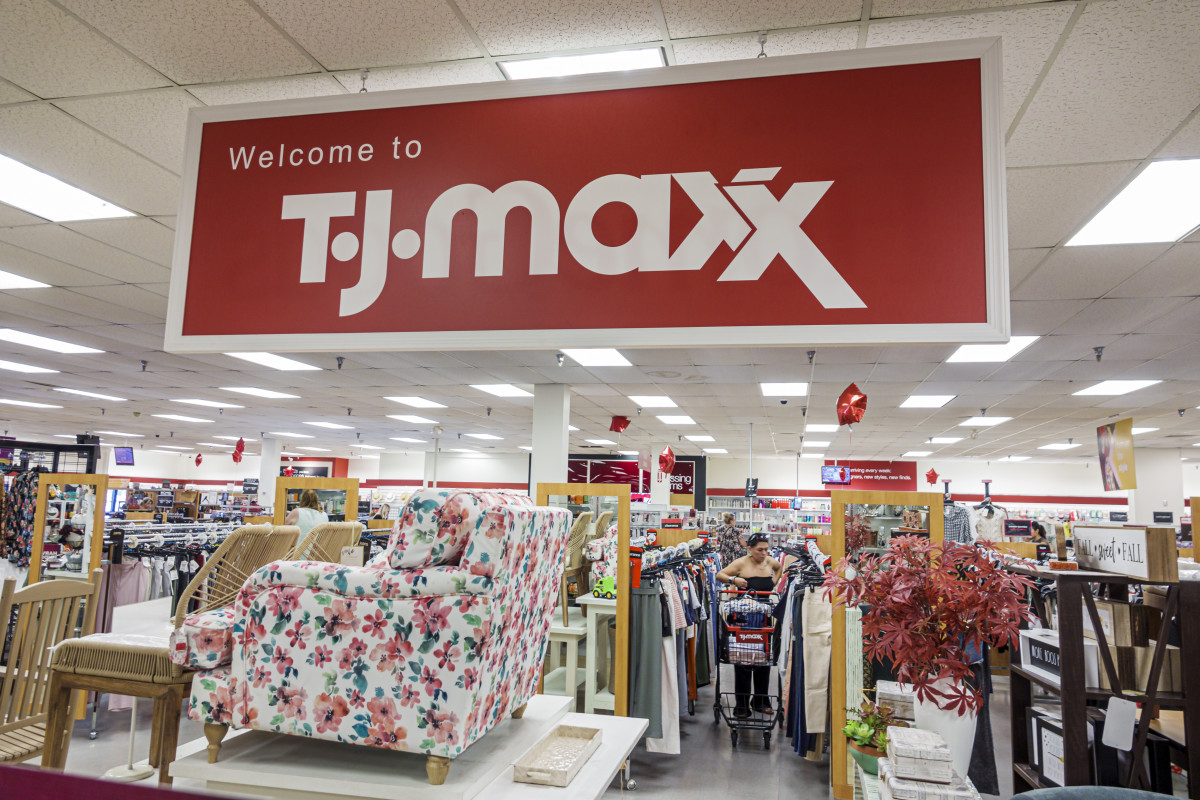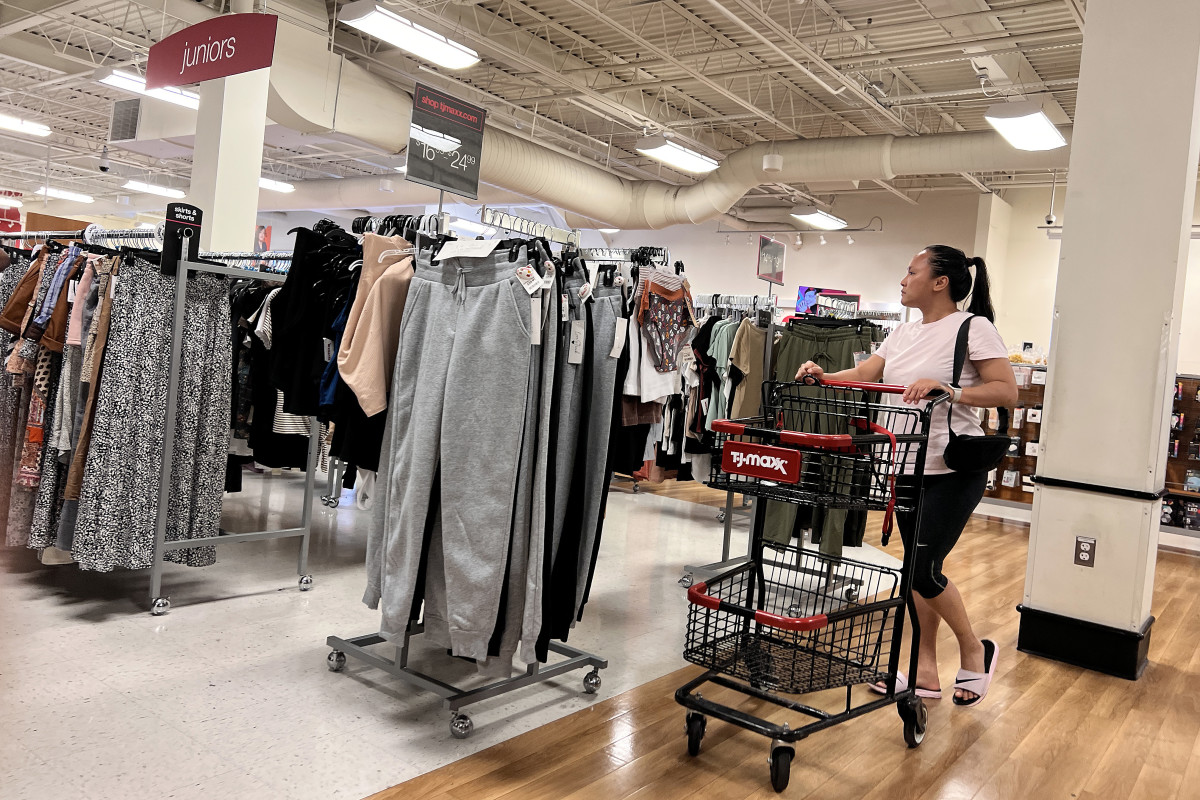
If you've ventured outside of the house to run some errands recently, you probably noticed a few changes at your local strip plaza.
Thanks to the changes in shopping behaviors in the 2020s, many consumers have adopted new habits whether they realize it or not.
Related: Home Depot launches Amazon-style feature customers will love
Gone are the days when many of us traipsed through an indoor mall for fun -- or otherwise -- on our weekends.
Now, if we go out to shop, most of us prefer to visit our local outlet mall or strip plaza. That's where many of the deals and discounts can be found. At outlet malls, brands sell spillover inventory or products from past seasons that usually have no design flaws; they just need to be moved.
TJX Companies (TJX) runs a similarly functioning model. The parent company, which runs TJ Maxx, Marshalls, HomeGoods, Sierra, and several other names, sources excess inventory from hundreds of brand name labels like Polo, Crocs, Ugg, Le Creuset, and Laura Ashley and then resells that inventory at a lower price than you might find online or at the mall.

TJ Maxx enjoys considerable popularity
TJX stores have exploded in popularity in recent years. Thanks to a renewed enthusiasm for in-store shopping, its treasure hunt model lends itself nicely to a pleasant in-store discovery experience. No two stores stock the same inventory, and the same store changes so often that it almost never has the same products in stock week over week.
And its successful model bears out in the numbers. In late May, TJX reported bumper Q1 earnings, with a 6% increase in revenue year over year and an earnings-per-share beat of 6.34% at $0.93.
Related: Lululemon CEO sounds the alarm on a quiet but dangerous issue
Marmaxx, which combines TJX's popular T.J. Maxx, Marshalls, and Sierra stores, saw sales grow 5% to $7.75 billion. HomeGoods sales rose 6% to $2.08 billion. Comparable store sales, which measures the performance of stores that have been operating for over one year, were up 3%.
TJX announces major expansion plans
Business has been so good in recent months that TJX recently announced it would open approximately 1,300 new stores—a 25% increase in its store count—over the longer term.
During the most recent earnings call, TJX CEO Ernie Herrman told analysts that management is "convinced" that there's more than enough room to grow in key areas "over the longer term," which include the United States, Canada, Europe, and Australia.
And part of that expansion seems to be already taking hold. TJX announced on Monday that it will expand into Mexico, a previously untapped territory, with a new partnership and joint venture via the South American retail conglomerate Grupo Axo.
More Retail:
- Ulta CEO sounds the alarm on a growing problem
- Lululemon releases a first-of-its-kind product
- Target store introduces a new 'over 18' policy
- Amazon launches genius new subscription product
TJX will own 49% of the venture, and Axo will own 51%. Grupo Axo currently operates about 200 discount stores across South America, including labels like Promoda, Reduced, and Urban Store.
"With TJX’s decades of experience as an international off-price retailer, and Axo’s established base of over 200 off-price stores and 30 years of operating experience in Mexico, we see excellent potential to grow in another region and deliver our value proposition to a growing population of fashion- and value-conscious consumers in Mexico," CEO Ernie Herrman said.
Related: TJ Maxx takes drastic action to stop retail theft
TJX has not announced how many stores it plans to open in Mexico nor when the timeline for a grand opening in the region may be.
The company is no stranger to international operations, however. It currently operates over 350 TK Maxx stores in the United Kingdom and has been one of the most successful international ventures for the brand since its establishment in the mid-1990s.
Related: Veteran fund manager picks favorite stocks for 2024







